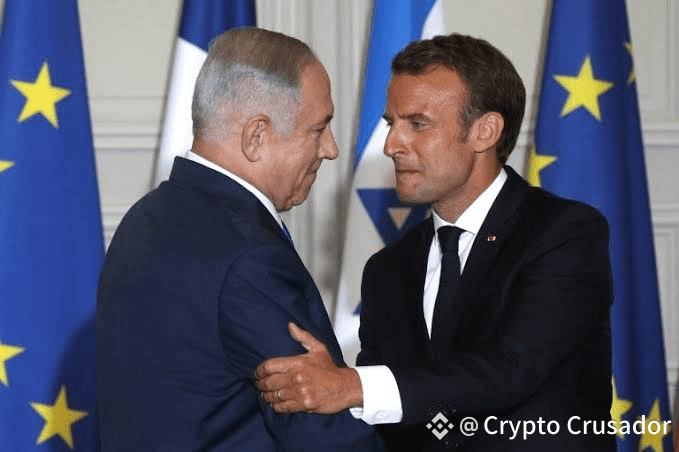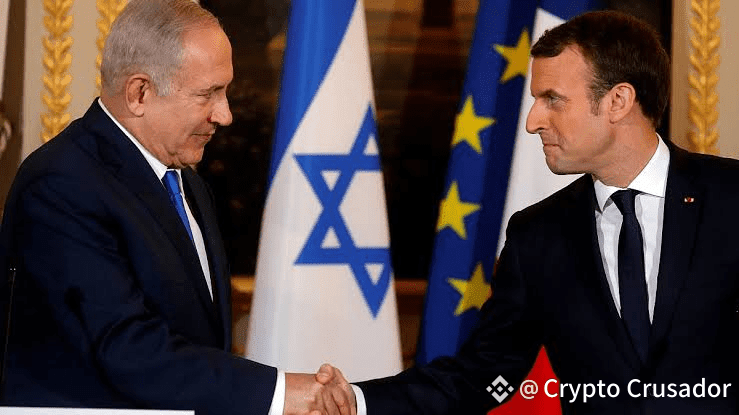
1. Main Article Heading
France to Recognise Palestinian State at UN; Netanyahu Lashes Out as 'Reward for Terror'
2. France’s Announcement: A Diplomatic Shift
On July 24–25, 2025, French President Emmanuel Macron declared via a public letter to Palestinian Authority President Mahmoud Abbas, shared on X, that France will formally recognize the State of Palestine at the United Nations General Assembly in September 2025 . This move makes France the first G7 nation to take such a step—a pivotal milestone in Western diplomacy .
Macron framed the recognition as integral to reviving the two-state solution, insisting alongside it on ASEAN calls for an immediate ceasefire, the release of hostages, urgent humanitarian relief to Gaza, and the demilitarization of Hamas as preconditions for viable peace . He further encouraged European and global partners to follow suit, describing this as part of a “collective dynamic” for resolving the long-standing conflict .
3. Netanyahu’s Stark Rebuke
Israel’s Prime Minister Benjamin Netanyahu responded with fierce condemnation. On his X account, he characterized France's move as a “reward for terror” and a strategic error that would “create a new Iranian proxy state”, claiming that “a Palestinian state in these conditions would be a launch pad to annihilate Israel, not to live in peace beside it” .
Further Israeli officials escalated their rhetoric: Defense Minister Israel Katz called the decision “a disgrace and a surrender to terrorism,” while Justice Minister Yariv Levin labeled it “a black stain” on France’s history and demanded immediate annexation of the West Bank and Jordan Valley in response .
4. Palestinian and International Responses
Palestinian leaders, including Vice President Hussein Al Sheikh, welcomed France’s decision. Al Sheikh hailed it as evidence of “France’s commitment to international law and our right to self‑determination” .
Meanwhile, other European nations, particularly Spain, Ireland, and Norway, have aligned behind recognition or indicated imminent moves in that direction . In the UK, burgeoning pressure is mounting on Prime Minister Keir Starmer, with Labour ministers and London’s Mayor Sadiq Khan advocating for immediate recognition as a step toward peace, though Starmer has called for a ceasefire first .
Canada, echoing broader Western concern, reiterated its support for a two-state solution while criticizing Israel’s humanitarian record in Gaza . The United States, meanwhile, signaled strong opposition, warning earlier that unilateral recognition could have adverse consequences for peace efforts .
5. Why It Matters
Geopolitical implications: As the first G7 power to formally recognize Palestinian statehood, France’s stance is likely to galvanize similar action from other influential nations.
Israel’s security concerns: Netanyahu and allies argue that the move legitimizes Hamas and Iran-aligned factions, potentially undermining Israeli survival.
Palestinian aspirations: For Palestinians, this is a major diplomatic victory toward statehood and international validation.
Regional instability risks: Market analysts caution that heightened tensions may ripple through global financial & crypto markets as regional instability escalates.
Path to peace: Macron positions the measure as a diplomatic lever that could revive a stalled two‑state process—but only paired with credible steps toward demilitarizing Hamas and ensuring Israel’s security.
6. Broader Context & Historical Recognition
France joins over 140 UN member states that already recognize Palestine, although most are smaller or non-Western nations . Notably:
In 2012, the UNGA adopted Resolution 67/19, upgrading Palestine’s status to “non‑member observer state,” a symbolic step short of full statehood .
France initially signaled readiness to act “at a useful time” and had passed a symbolic motion in 2014 advocating recognition; Macron had considered recognition at a cancelled June 2025 conference with Saudi Arabia .
7. What to Watch Next
The UN General Assembly session in September 2025, where Macron will formally announce recognition and potentially spark others to follow.
Reactions from key allies—especially the U.S. and UK—and potential political consequences in those capitals.
Israeli countermeasures, including diplomatic reprisals or further territorial integration.
Humanitarian and security developments in Gaza, as the crisis deepens and efforts to institute a ceasefire remain stalled.

Conclusion
France’s decision marks a turning point in international diplomacy on the Palestinian issue, provoking fierce backlash from Israel and apology from Palestinian dignitaries. Whether Macron’s move catalyzes a renewed peace trajectory—or inflames regional divisions further—depends on developments in the coming months.
Let me know if y
ou'd like analysis on potential economic impacts or further geopolitical mappings.